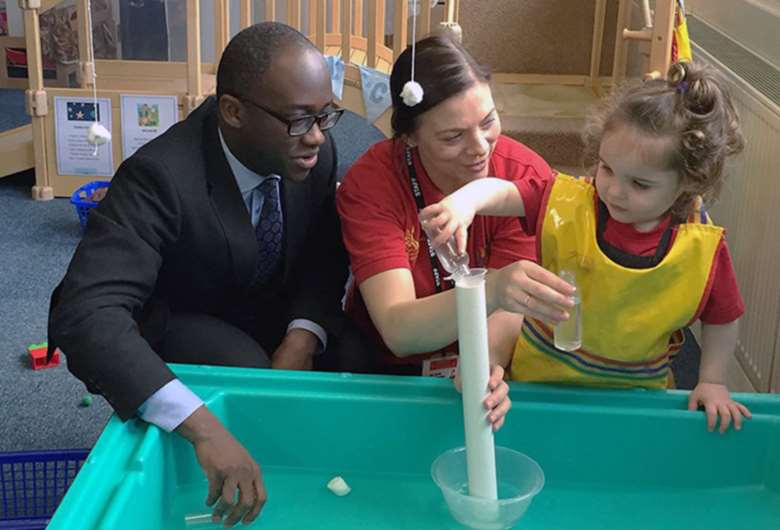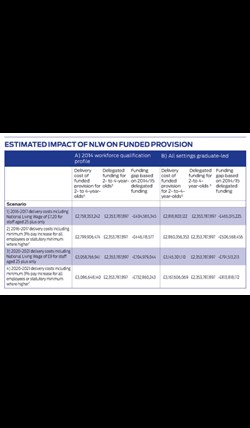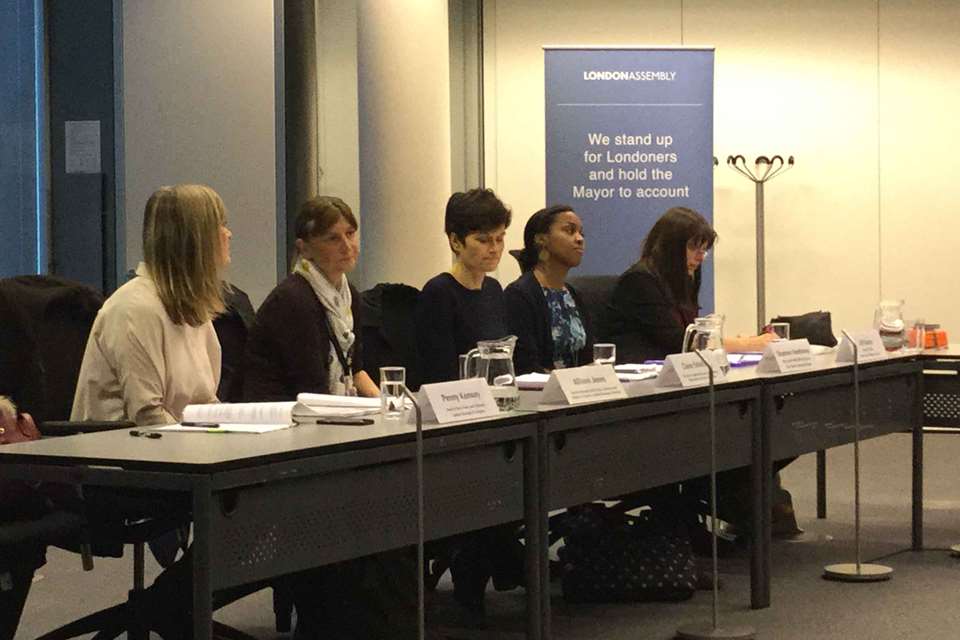30-hour pilot areas unveiled as criticism mounts
Monday, February 8, 2016
Eight local authority areas will pilot the 30-hour free childcare offer for working parents of three- and four-year-olds from September.

Eight local authority areas will pilot the 30-hour free childcare offer for working parents of three- and four-year-olds from September.
The areas taking part in the £13m trial are Wigan, Staffordshire (see box), Swindon, Portsmouth, Northumberland, York, Newham and Hertfordshire.
Local authorities put in bids to offer the 30 hours a year early in an open competition, and the eight councils chosen by the Department for Education were given the news last week.
It will be up to each council to decide how to run the scheme.
The announcement came on the day that the House of Lords approved minor amendments to the wording of the Childcare Bill, which enshrines working parents’ entitlement to the extra 15 hours on top of the existing 15-hour entitlement. The bill is expected to become law within weeks.
The DfE confirmed that parents in the pilot areas will need to meet the eligibility criteria for the offer – that is, all parents in the household working the equivalent of 16 hours a week at the national minimum or living wage up to a maximum salary of £100,000 a year per parent. Parents do not necessarily need to actually work 16 hours a week, but their earnings must reflect at least 16 hours of work at National Minimum Wage (currently £107 a week) or National Living Wage; this includes those on zero-hour contracts who meet the criteria.
The DfE said the expectation is that higher-earners will not apply for the extra hours if they do not need the childcare to cover them while they are working.
However, it will be up to each council to decide how to offer the places during the trial.
Although the final detail has yet to be confirmed, York is expecting to offer the places to parents through all providers that have the capacity to offer the extra hours. Barbara Mands, head of childcare strategy at City of York Council, said, ‘York is unique among the pilot scheme in that, unlike the other local authorities, we will roll out this scheme to all eligible children with day nurseries, childminders, playgroups and schools with nurseries in the city that have spaces for the additional 15 hours’ care. This will be supported by York’s share of the £13m national funding.
‘The detail of eligibility criteria will be finalised when the Childcare Act comes into force, but we’re hoping for agreement on a fair and sustainable rate of funding between the local authority and the DfE to be confirmed this spring, when preparations can begin ready for the new term in September 2016.’
The experiences of the pilot areas will be used to support the expansion of the scheme across all local authorities in England from September 2017.
 Running alongside the pilots, 25 other local authorities based in regional clusters will share £4m as ‘Early Innovators’ looking at addressing specific issues, such as how to make it easier for nurseries and childminders to offer places for children with disabilities and special educational needs (see panel, right).
Running alongside the pilots, 25 other local authorities based in regional clusters will share £4m as ‘Early Innovators’ looking at addressing specific issues, such as how to make it easier for nurseries and childminders to offer places for children with disabilities and special educational needs (see panel, right).
Funding worries
Meanwhile, early years organisations and providers remain concerned that the funding on offer will be too low to make the entitlement viable.
Criticising the income threshold allowing parents earning up to £100,000 a year to claim the extra free hours, Linda Symons, who runs two Kidz Kabin nurseries in Haringey and Barnet in north London, this week launched an online petition calling for a means test in order for the additional 15 hours to solely benefit low-income families.
‘It affects every family with a three- and four-year-old, every PVI is going to suffer from under-funding,’ she told Nursery World. ‘The shame is that what providers will have to do, if they are going to do it, is find a way round it. All it’s doing is causing angst and concern for providers.’
Commenting on the pilot areas, Ms Symons said, ‘It’s very notable that they haven’t used a central London area to test it, because I believe this would highlight the underfunding.’
The petition on the Government’s website has attracted more than 700 signatures in less than a week.
Sector organisations including the National Day Nurseries Association and the Pre-school Learning Alliance have also backed a study by researchers from the Family and Childcare Trust, published this week. The report, ‘Creating an anti-poverty childcare system’, includes a costed proposal for an alternative childcare offer to the 30 hours.
This is based on subsidised fees, as well as a simplified funding system for parents to replace the childcare element of Working Tax Credit.
Co-author of the report Adam Butler said the proposal was based on the premise that childcare providers would already be receiving sufficient funding to cover costs of offering free places.
]]






